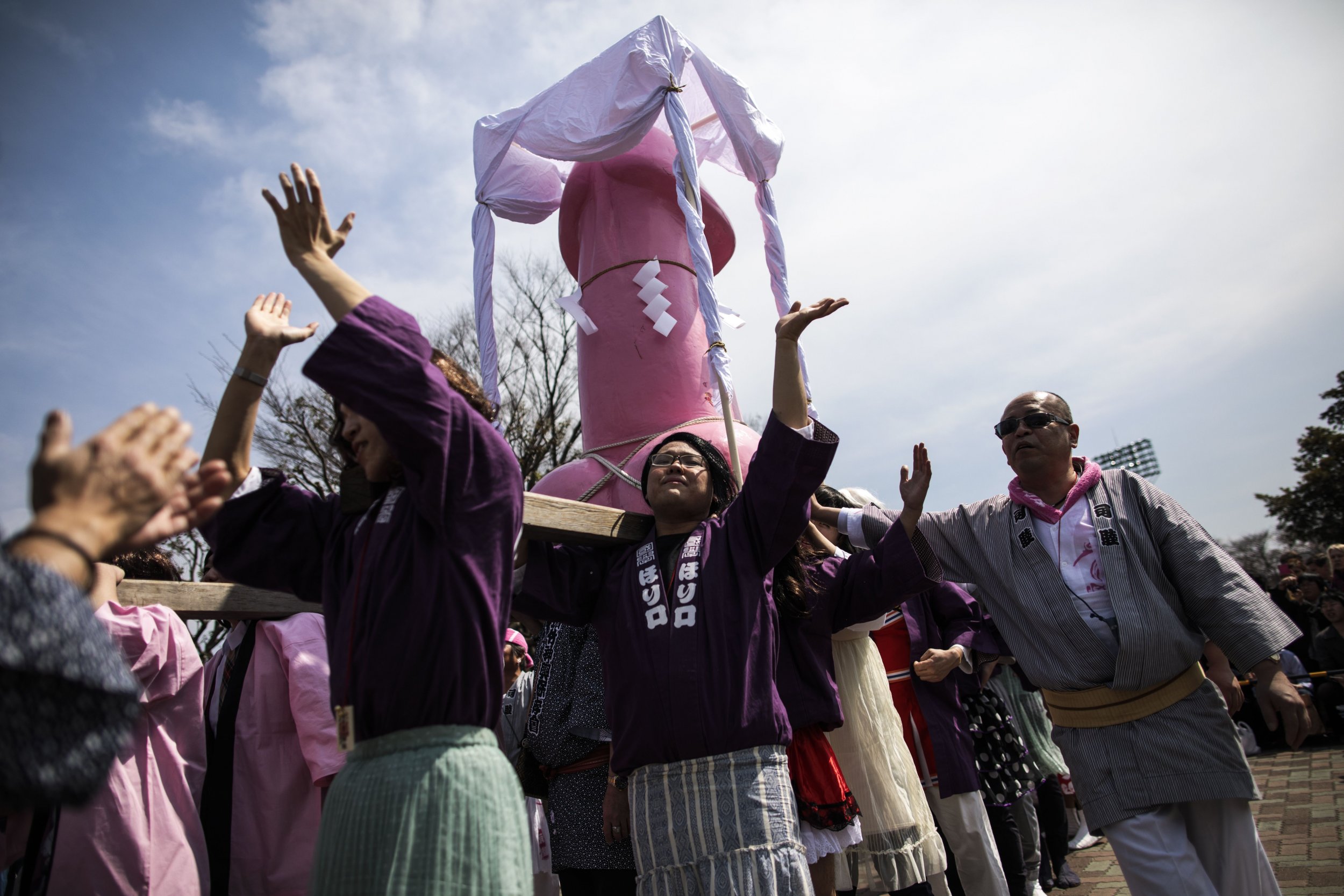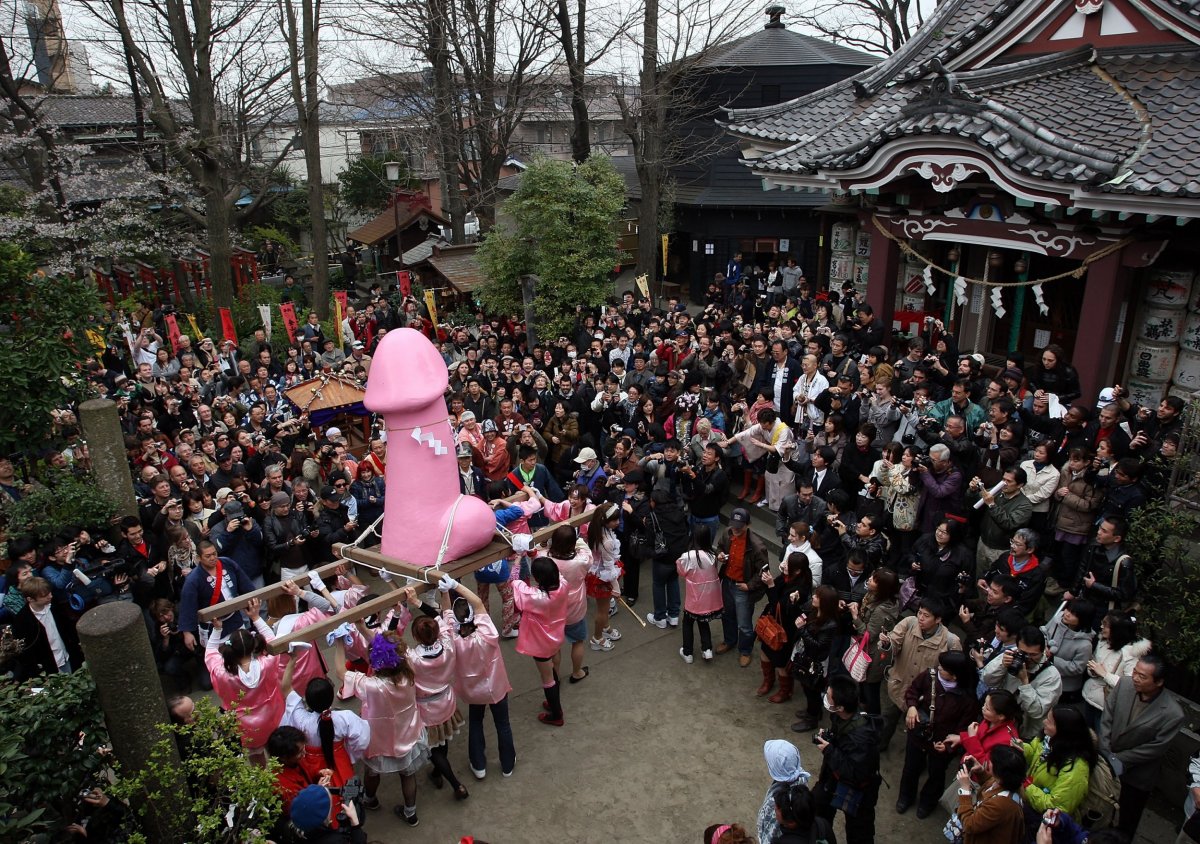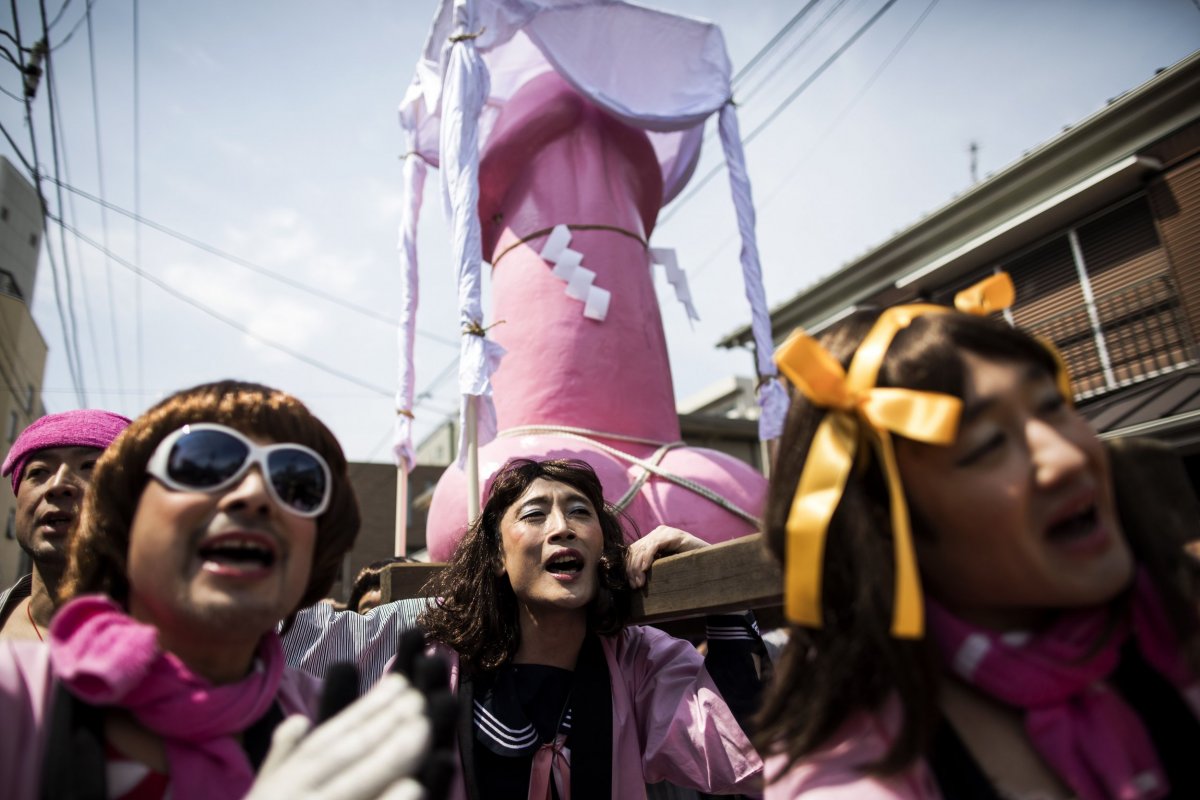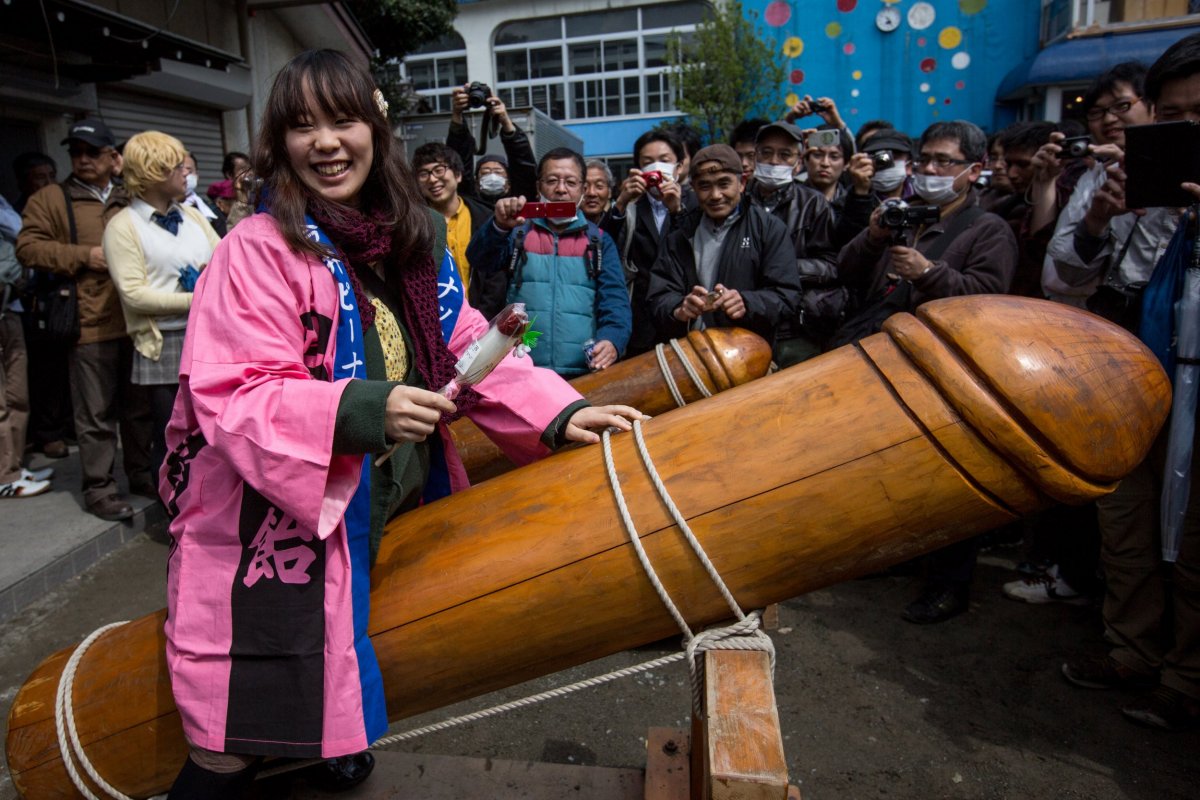
Every year, on the first Sunday of April, thousands of people line the streets of the Japanese city of Kawasaki, south of Tokyo, to celebrate the male genitalia. Welcome to Kanamara Matsuri, literally translated as the "Festival of the Steel Phallus."
Festival goers indulge in colorful penis-shaped food and memorabilia as portable shrines of three giant phalluses are paraded through the city. There's a black steel phallus, a brown wooden phallus and a bright pink phallus known as "Elizabeth," after the name of a popular Tokyo cross-dressing club that donated the giant sculpture, which is traditionally carried by people in drag.
The Kanayama Shrine, a smaller shrine that honors the gods of mining and blacksmiths within the larger Wakayama Hachimangu, is the revelers' final destination. The atmosphere of the sex-positive, LGBT-inclusive celebration is fun and relaxed, but the festival is deeply embedded with the Shinto religion and also a socially-conscious opportunity to raise funds for research into sexually-transmitted diseases (STDs).

Its origins can be traced back to Japan's Edo Period (1603-1868), a time when Kawasaki was a bustling trade center with a busy nightlife and the Kanayama Shrine became a place of worship for sex workers needing protection from STDs.
The myth surrounding the festival's origin takes an allegorical approach, but it doesn't take too much imagination to discern the moral behind the metaphor. The tale tells the story of a toothed demon who began inhabiting a woman's vagina after she rejected him to marry another man.

The demon twice bit off the husband's penis when the newlyweds tried to consummate the marriage, so the woman went to a blacksmith to forge a steel phallus for her husband to break the demon's teeth, forcing the evil spirit to leave her alone, according to the South China Morning Post.
The tradition of holding a festival in the city celebrating fertility and health was lost in the 1800s, but the shrine's chief priest Hirohiko Nakamura decided to revive it in the early 1970s. What was at first a celebration held at nighttime among a small group of people has now expanded to an internationally-renowned event that gathers as many as 50,000 visitors, The Independent reported in 2017.

Festivals celebrating fertility and safe sex remain poignantly relevant in modern Japan, where birth rates are falling to record lows, and the fight against STIs (sexually transmitted infections) has been a public health concern for more than a decade. In 2004, a medical survey reported in UPI found that one in 10 Japanese high school students, and nearly 24 percent of 16-year-olds, had experienced an STI. Lack of sexual education and reluctance to use condoms were among the factors to blame, according to experts quoted in the BBC at the time.
Ten years later, a U.N. report found that Japan's rates of HIV were falling—but an old disease was making a comeback. Once nearly eradicated, syphilis rates are increasing across the world. In Japan they are at a four decade-high, with 5,770 people diagnosed with the disease last year alone, according to figures from the National Institute of Infectious quoted in The Japan Times.
Uncommon Knowledge
Newsweek is committed to challenging conventional wisdom and finding connections in the search for common ground.
Newsweek is committed to challenging conventional wisdom and finding connections in the search for common ground.
About the writer
Sofia Lotto Persio reports mainly on Asia and gender issues for Newsweek. She previously covered international affairs with a specific ... Read more
To read how Newsweek uses AI as a newsroom tool, Click here.








